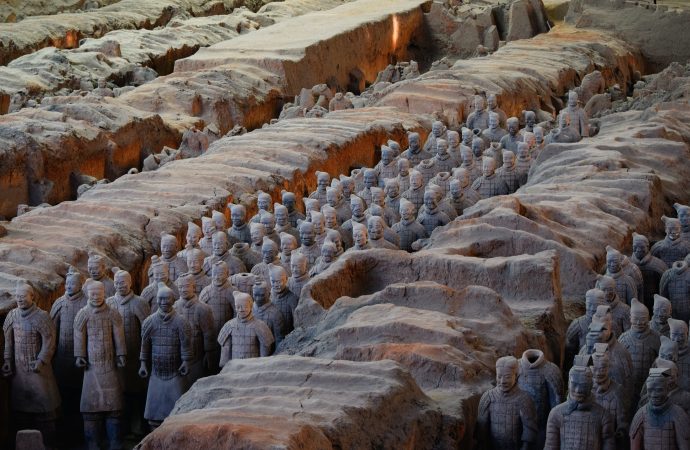The Roman Empire, known for its grandeur and opulence, was home to a civilization that valued wealth and adornment. However, even the most meticulous Romans were not immune to misplacing their valuable possessions. Through archaeological discoveries and historical accounts, we gain fascinating insights into how the Romans unintentionally lost their treasured belongings, from rings to
The Roman Empire, known for its grandeur and opulence, was home to a civilization that valued wealth and adornment. However, even the most meticulous Romans were not immune to misplacing their valuable possessions. Through archaeological discoveries and historical accounts, we gain fascinating insights into how the Romans unintentionally lost their treasured belongings, from rings to coins, shedding light on their everyday lives and customs.
The accidental loss of personal items by the Romans can be attributed to a variety of factors. One such factor was the sheer number of possessions they owned. The Romans, particularly the wealthy elite, possessed an array of valuable objects, including jewelry, coins, and household items. With such vast collections, it was inevitable that some items would be misplaced or forgotten in the hustle and bustle of daily life.
A common scenario leading to the loss of precious items was during bathing rituals in Roman baths. These public bathing complexes were central to Roman social life, offering opportunities for relaxation, socialization, and personal grooming. The Romans would remove their jewelry and place it in designated areas before entering the baths. However, in the chaos of multiple bathers, it was easy for valuable items to be mistakenly taken or for the owners to forget them when leaving. Consequently, rings, necklaces, and other jewelry were frequently lost in the communal bathing spaces.
Another context in which valuable possessions were often misplaced was during meals and social gatherings. Roman dining was an elaborate affair, often involving multiple courses and lavish displays. Guests would recline on couches while dining, and it was customary for them to remove their rings and place them on the table. With the convivial atmosphere and numerous distractions, it was not uncommon for rings to be accidentally knocked off the table and lost among the many delicacies and conversation.
Coins, too, were frequently lost in everyday transactions. The Romans relied heavily on coins for trade and commerce, and they would carry pouches or purses filled with various denominations. In the bustling markets and crowded streets, it was easy for coins to slip out of pockets or for purses to be dropped or stolen, resulting in the loss of valuable currency. Additionally, during times of war or unrest, individuals would often bury their wealth for safekeeping. However, some of these hidden caches were never recovered, leaving behind buried treasure waiting to be unearthed by modern-day archaeologists.
Archaeological excavations have provided a wealth of evidence for the accidental loss of valuable items by the Romans. Many Roman sites, such as ancient cities, villas, and even roads, have yielded a treasure trove of lost objects. These discoveries offer a glimpse into the material culture of the time, providing insights into the types of possessions the Romans considered valuable, as well as their craftsmanship and artistic preferences.
The accidental loss of valuable possessions by the Romans speaks to the vibrancy and complexity of their society. It highlights the everyday experiences of individuals from all walks of life, from the wealthy aristocrats to the common citizens. It is a reminder that, despite their grand achievements and vast wealth, the Romans were still prone to the same human follies as any other civilization.
Conclusion:
In conclusion, the accidental loss of valuable possessions by the Romans reveals intriguing aspects of their culture and way of life. From lost rings in the communal baths to misplaced coins during bustling market transactions, these historical mishaps provide valuable insights into the daily experiences and habits of the Romans. Through the lens of archaeology and historical records, we continue to uncover the stories of the Romans and the precious objects.

















Leave a Comment
Your email address will not be published. Required fields are marked with *